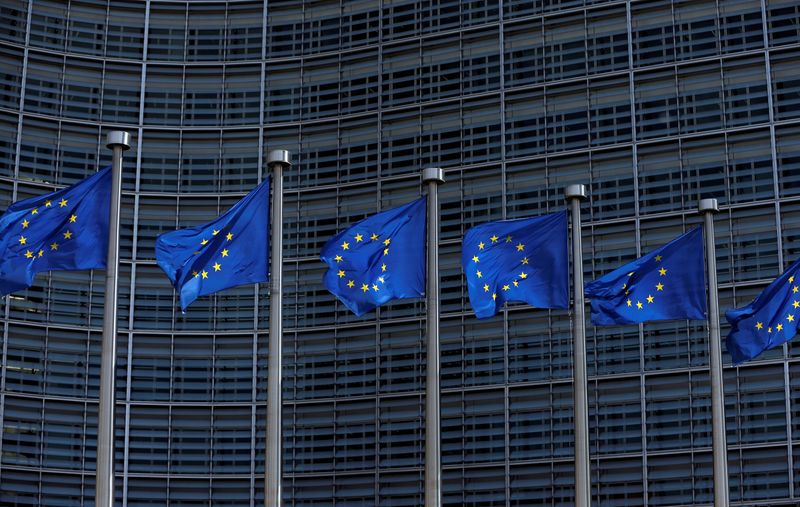By Jan Strupczewski
BRUSSELS (Reuters) - The chairman of the European Union's leaders proposed on Friday filling the hole left by Britain in the bloc's next long-term budget with revenue from a new tax on plastics and funds from trading carbon emissions.
Presenting a so-called 'negotiating box' which will form the basis of intense horse-trading between 27 EU national leaders at a summit on Feb. 20, Charles Michel proposed a budget for 2021-27 of 1.074% of the EU's gross national income, or 1.095 trillion euros (£910.48 billion), of which a quarter is to go towards making the EU neutral in terms of CO2 emissions by 2050.
The departure of Britain from the bloc on Jan. 31 left a gap of more than 10 billion euros a year in the EU's funding, since it was a leading contributor to the budget after Germany.
But EU officials said revenue from the plastics tax and money from the augmented carbon trading scheme, which would also incorporate the transport sector, could generate 14 billion to 15 billion euros a year -- more than enough to fill the gap.
The tax on plastics would be 0.8 euro per kilogram of non-recycled plastic packaging waste. The carbon money would come from revenue generated by the EU Emissions Trading System (ETS) exceeding the average annual revenue per country generated by allowances auctioned over the period 2016-18.
The EU is also considering other taxes -- on the digital economy, flying, financial transactions and on products made with high CO2 emissions imported into the EU -- as further sources of revenue.
But the overall budget number is still too high for a group of the biggest net contributors led by Germany, the Netherlands, Austria, Sweden and Denmark. These richer countries don't want an amount higher than 1.0% and criticized the 1.07% figure when it was presented by the Finnish EU presidency last year.
"It’s difficult to see how this proposal will form a basis for compromise," one EU diplomat from the net contributor countries said of Michel's proposal.
"The ceiling is too high, the modernisation too little. There remains a need for permanent corrections to ensure fair burden sharing," the diplomat said.
But senior EU officials involved in the preparation of the summit said 1.074% of GNI was the mid-point of positions of the 27 governments that Michel consulted over the last two weeks and offered the best starting point for a compromise.
To ease worries of net payers who get rebates on contributions, something net beneficiaries want scrapped, Michel proposed lump-sum corrections for Denmark, Germany, the Netherlands, Austria and Sweden.
Michel said EU funding should be conditional on governments respecting the rule of law - a point many of the net payers insisted on to keep pressure on Poland and Hungary that stand accused of violating democratic checks and balances.
His proposal keeps funds for equalising living conditions across the 27 EU countries at 35% of the total, the same as the 2014-2020 budget.
But it cuts support for farmers, an item often criticised as preserving an outdated economic model, to 30% from 36%, and raises spending for the single market, innovation and the digital economy to 13.7% from 11.2% in the previous 7 years.

There is also an increase in spending on defence and on exerting the EU's influence in the world. EU administration funds will rise.